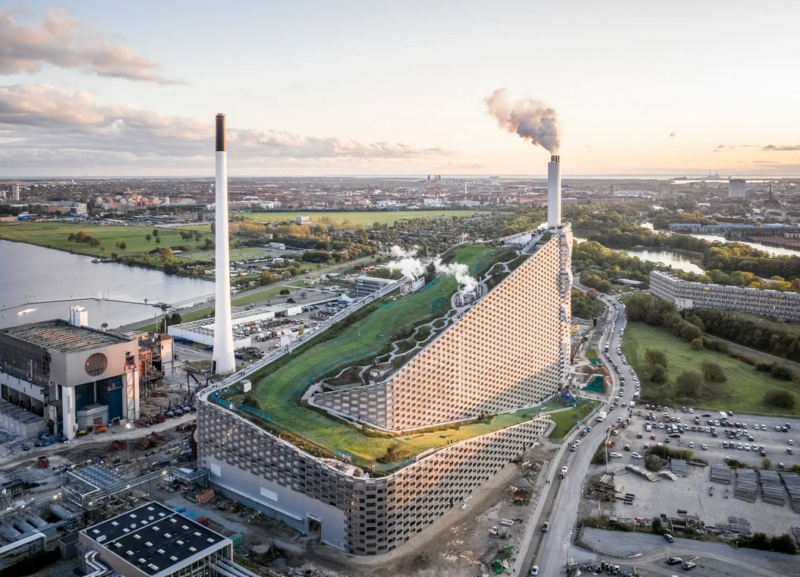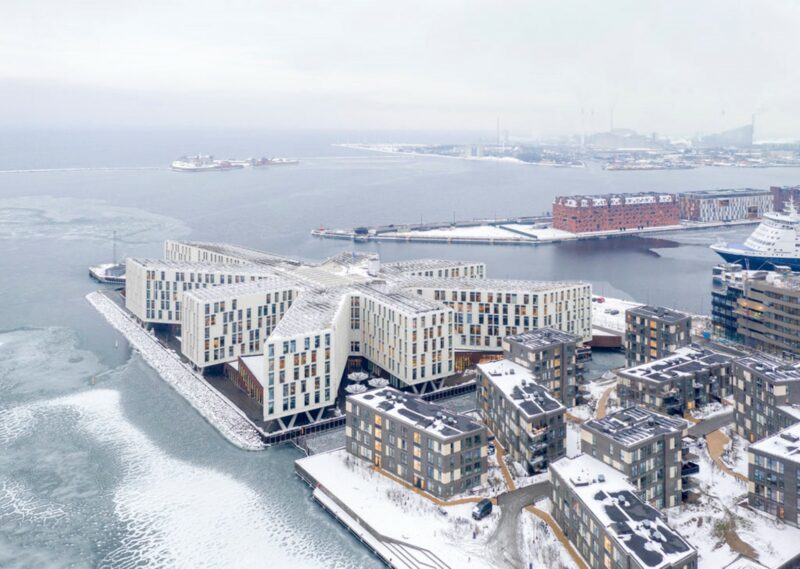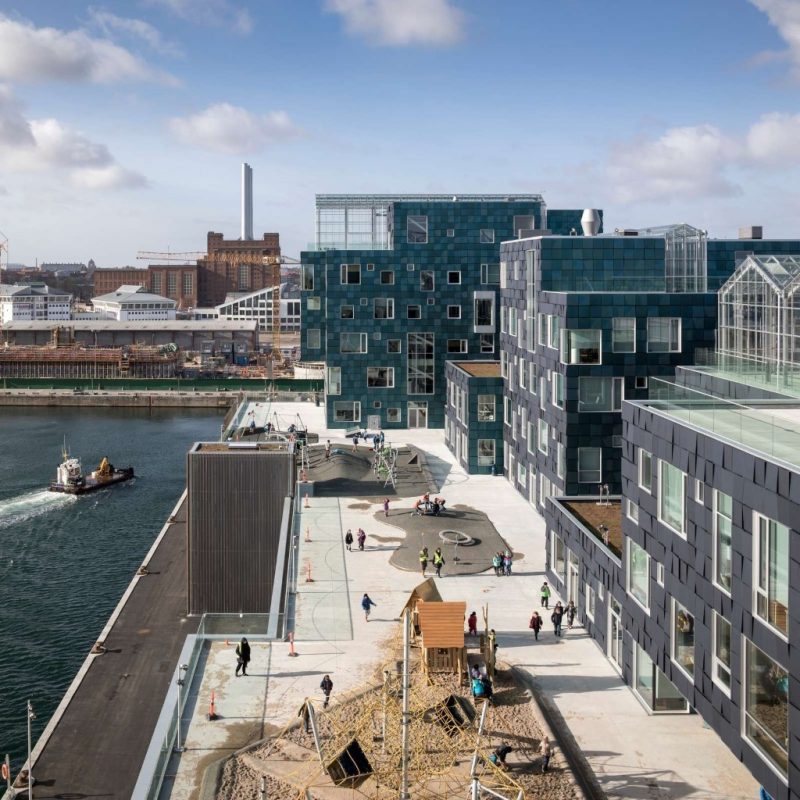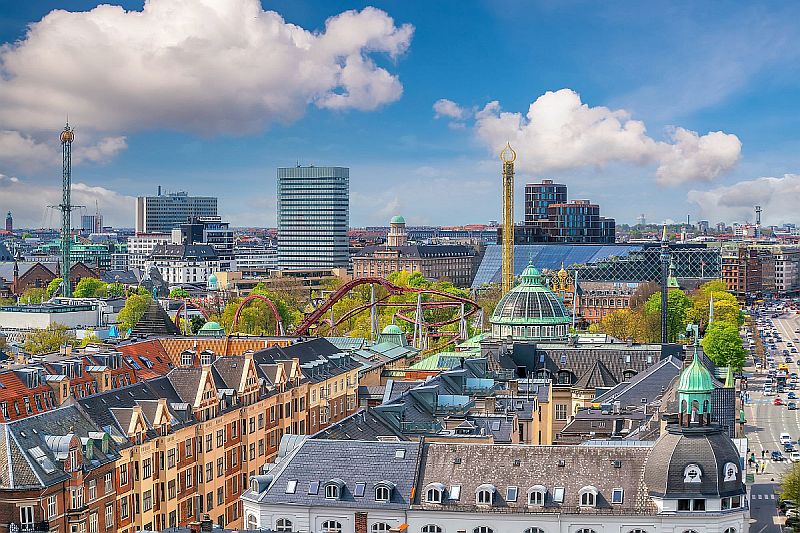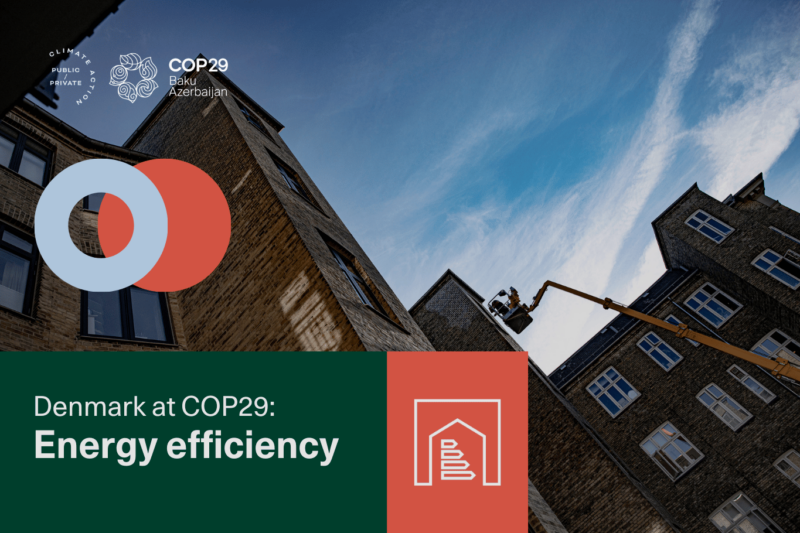News
Buildings
Circular business models
Hazardous waste handling
+4
Grand Solution: Circle Bank will outcompete linear construction by 2030
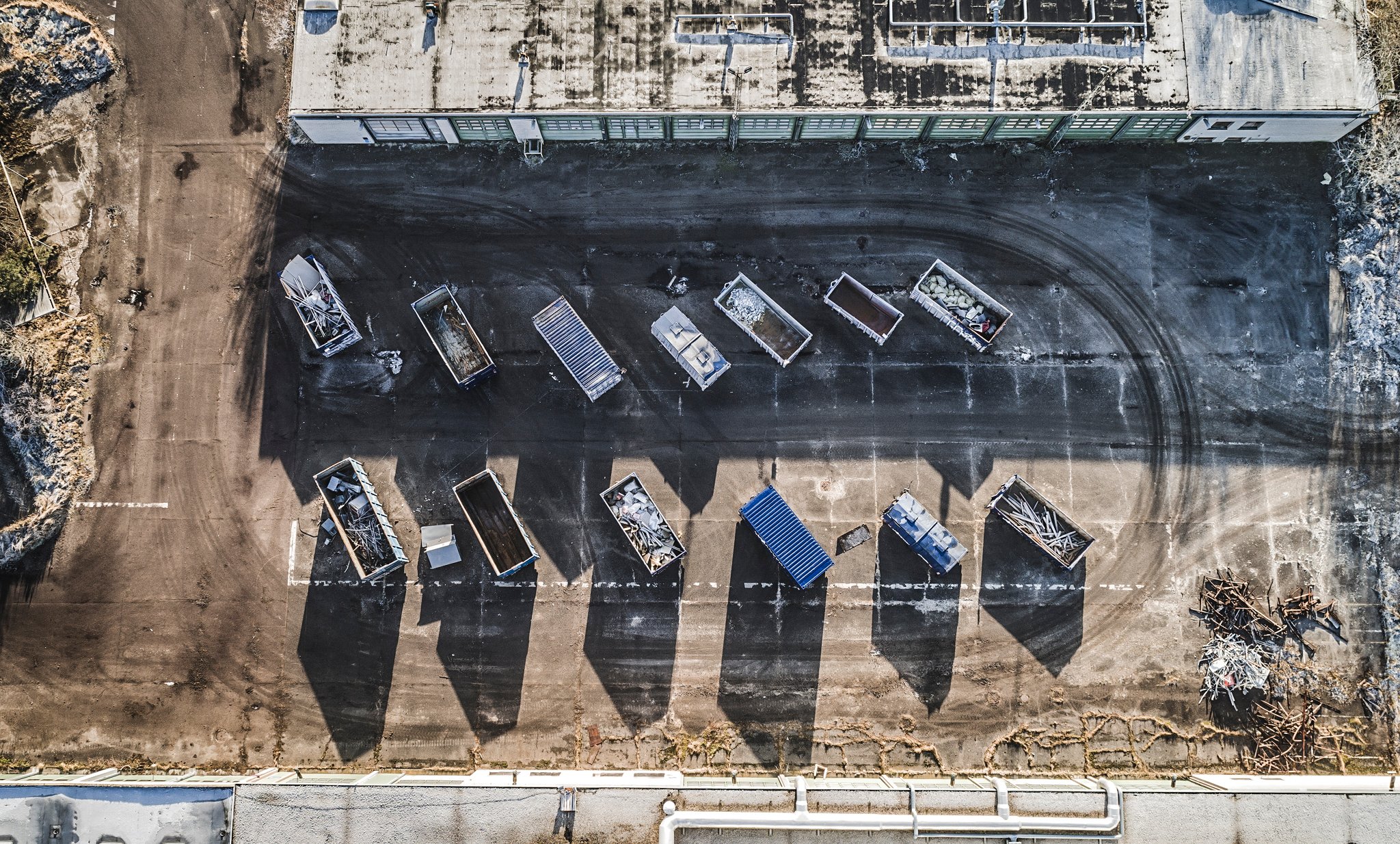
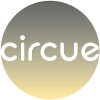
Circle Bank is a three-year Grand Solution-project aimed at creating a digital platform, which will accelerate circular construction. With a total budget of EUR 2.7 million and a funding of EUR 1.7 million from Innovation Fund Denmark and Realdania, the consortium has embarked on the three-year journey to support the stakeholders in the construction sector in their transition towards a competitive circular economy.
"We need a reliable tool, which ensures that our decisions concerning circular construction are made on an informed basis and supports our ambition to implement as sustainable buildings as possible," says Robert Nellemann from Danica Real Estate, who is one of the partners in the project and one of the Denmark’s largest private builders.
He is backed by Flemming Rafn from the architectural studio Third Nature, who is also participating in the ambitious project, "Today, it is difficult to reuse building materials on a large scale, because we do not have a handle on where the materials are located, what condition they are in and what we can use them for,” Flemming Rafn adds.
And this requires new solutions, if you ask Jesper Kort Andersen, Project Director at Lejerbo, who adds, "Today, construction is in dire need of new solutions that can push the industry in a greener and more sustainable direction. Used building materials play a key role and that’s why it is important that we develop new tools that can streamline our processes and help improve the quality of construction.”
Construction must be part of the solution
Overall, construction accounts for almost 40% of global CO2-emissions, while production, transport and waste generation and management in the construction sector account for 11% of global emissions of climate gases. It is this part of the construction sector’s footprint that the Circle Bank project addresses.
In addition to CO2-emissions, construction is a major consumer of virgin materials made from scarce resources. By reusing existing building materials, the project also helps ensure a lower impact on the planet's resources. At the same time, the project aims to help reduce the amount of waste in the construction sector, which is otherwise expected to increase to more than 2.2 billion tons CO2-emissions globally by 2025
Linear construction is cheaper - a little while longer
From the Danish Technological Institute, where Katrine Hauge Smith is project manager for the large-scale project, the message is that today it is often both cheaper and easier to build with virgin materials, but that we’re reaching a pivotal point.
"As requirements and objectives are introduced to reduce CO2-emissions, as we have just seen with the new, Danish political agreement on sustainable construction, it is only a matter of time before the circular economy becomes competitive. With the new requirements for handling construction waste, it will be crucial to be able to use recycled materials in the construction,” Katrine Hauge Smith stresses.
Based on existing experience
The goal of the Circle Bank project is to build on the current experiences and interesting experiments around circular construction that have seen the light of day over the past decade. By adding new research and integrating with existing tools and processes in the industry, the consortium behind Circle Bank will build a digital platform, which aims to be the circular construction sector’s preferred collaboration platform.
"With Circle Bank, we gather existing and readily available knowledge related to circular construction in a digital decision support tool, where we can simultaneously track and trade the materials," says Thomas Fabian Delman, Ceo of CB Nordic, who will develop and operate the new digital platform.
Jens Hørby Jensen, owner of the Jensen Group and chairman of CB Nordic's board of directors, adds, "With Circle Bank, we optimise all links in the value chain and reduce the cost of circular building construction.”
When falling costs in circular construction meet the rising costs of linear construction, the consortium behind Circle Bank expects the construction industry to change course in a more sustainable direction.
"We hope that the entire industry will support the project. It requires a determined effort and a unified platform if we are to fulfil the construction sector's share of the Paris agreement, concludes Lene Brix, chair of the project steering committee.
Facts /details
For further information, please contact:
- Lene Brix, Chair of the Circle Bank Steering Committee, [email protected], +45 5124 9794
- Thomas Fabian Delman, CEO, CB Nordic ApS, [email protected], +45 3029 5776
- Katrine Hauge Smith, Senior Consultant / Project Manager, Danish Technological Institute, [email protected], +45 7220 1404
- Jakob Dahl Wedel, Scientific Officer, Innovation Fund Denmark, [email protected], +45 6190 5031, [email protected]
- Simon Kofod-Svendsen, Project Manager, Realdania, [email protected], +45 2094 8995
About Circle Bank
Circle Bank is a Grand Solution project aiming to create a digital platform that integrates new knowledge within scanning, demolition, material handling and architectural design. Circle Bank's ambition is to create a decision support tool and a market platform that supports circular construction in Denmark, as well as internationally. The project is supported by Innovation Fund Denmark and Realdania through a collaboration that aims to support research and development projects for the construction sector's transition to a circular resource economy.
Commercial partners
CB Nordic ApS is founded to ensure that the knowledge created in the project can be marketed for the benefit of all stakeholders in the construction sector. The company is jointly owned by the commercial partners of the Circle Bank project.
Contact: Thomas Fabian Delman, CEO, [email protected], +45 3029 5776
Third Nature is an architectural office that creates regenerative cities and develops scalable climate solutions for the city's green transformation.
Contact: Flemming Rafn, co-founder and partner, [email protected], +45 4093 4309, [email protected]
Matter bybrix is an architectural company that advises public and private clients in circular development and strategic processes within the built environment.
Contact: Lene Brix, CEO, [email protected], +45 51249794
Jensen Demolition A/S is a leading Danish demolition and environmental redevelopment contractor, which through innovative methods specialises in the recycling and recycling of building materials.
Contact: Thomas Sinding, Head of Development, [email protected], +45 60 12 81 83
HD Lab is a technology company that tries to solve some of the challenges of the construction industry through new approaches, collaboration, and efficient use of technology.
Contact: Rolf Büchmann-Slorup, COO & Partner, [email protected], 31320298
Twentyfifty is a strategic advisor focusing on innovation processes & business development in the circular economy and green transition.
Contact: Thomas Fabian Delman, CEO, tfd@twentyfifty.dk, +45 3029 5776
Knowledge partners
The Danish Technological Institute, Construction & Construction represents Denmark's largest concentration of knowledge about building materials.
Contact: Katrine Hauge Smith, Senior Consultant (Project Manager), [email protected]
SDU Life Cycle Engineering, the University of Southern Denmark delivers quantitative sustainability assessments and communication.
Contact: Morten Birkved, Professor (MSO) and Head of Centre, [email protected]
Market Partners
Danica Real Estate invests in real estate to ensure a good and secure return for pension customers' savings. Danica's property portfolio is one of Denmark's largest.
Contact: Robert V. S. Nellemann, Head of Property Development, [email protected]
Lejerbo is one of Denmark's largest public administration organisations with housing distributed throughout most of the country.
Contact: Jesper Kort Andersen, Project Manager, [email protected]
Middelfart Municipality is a green growth municipality where the focus on climate, sustainability and Circular Economy is a cornerstone of its ongoing development.
Contact: Tine Veng Basse, Project Manager at Middelfart Municipality, [email protected]
Roskilde Municipality contributes to circular conversion of construction through partnerships, market dialogue and binding strategies focusing on recycling and sustainability.
Contact: Klaus Kellermann, Client Advisor and Sustainability Architect at Roskilde Municipality, [email protected]
You should consider reading
solutions
Combined heat and power production
+6
CopenHill: The story of the iconic waste-to-energy plant
20 November 2024solutions
Energy efficiency in buildings
+2
Greening the UN one building at a time
20 November 2024events
Urban planning and development
+7
